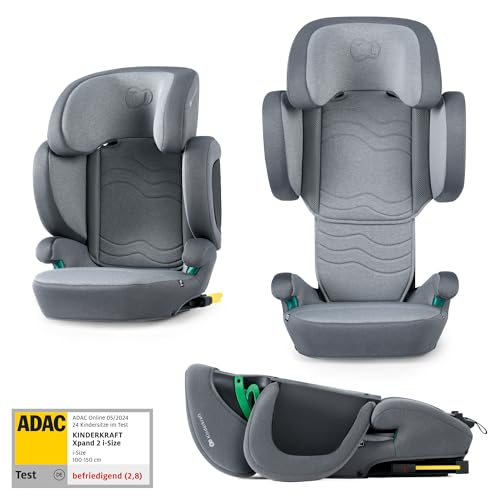Strollers and Pushchairs: The Ultimate Guide for Parents
Selecting the ideal stroller or pushchair is one of the most important choices new moms and dads will make. With Pram Vs Pushchair of options readily available, understanding the differences and features can substantially affect the experience of both parents and children. This detailed guide aims to illuminate the distinctions in between both, the aspects to consider when acquiring, and responses to often asked concerns.
Understanding Strollers and Pushchairs
Strollers and pushchairs are typically utilized interchangeably, however subtle distinctions set them apart. A stroller is normally created for babies and young children, offering a more flexible technique with included functions for comfort and security. On the other hand, pushchairs are usually focused on older babies who can stay up unaided and tend to be more light-weight and portable.
Secret Differences Between Strollers and Pushchairs
| Function | Stroller | Pushchair |
|---|---|---|
| Age Range | Newborn to young child | Typically for 6 months to 3 years |
| Weight | Generally heavier due to extra functions | Lighter and often simpler to carry |
| Recline Position | Can normally recline fully for babies | Minimal recline; typically upright |
| Storage Space | More storage compartments and devices offered | Minimal storage, typically just a small basket |
| Convenience | Designed with more cushioning and assistance | Less padding, lighter frame for ease of use |
| Foldability | May have intricate folding mechanisms | Frequently designed to fold easily and compactly |
Elements to Consider When Buying a Stroller or Pushchair
When selecting in between a stroller or pushchair, numerous factors can shape your decision. Here are some important factors to consider:
1. Security Features
- Harness system (5-point is the most safe)
- Stability and strength of the frame
- Brakes that lock securely
2. Convenience
- Padding and assistance for the kid
- Adjustable seat positions
- Ventilation for heat
3. Size and Weight
- How easy is it to transport?
- Will it suit your car?
- Does it take up too much storage area at home?
4. Flexibility
- Is it adaptable for automobile seats or carrycots?
- Can it manage various surfaces (city vs rural)?
5. Cost
- What is your budget plan?
- Does the stroller/pushchair deal worth for its features?
6. Ease of Use
- How quickly can it be folded and unfolded?
- Is it easy to browse through crowds or tight areas?
7. Toughness
- What materials are used?
- The length of time is the service warranty?
8. Brand name Reputation
- Search for brand names known for producing quality products.
- Check out reviews from other parents.
The Types of Strollers and Pushchairs
Strollers and pushchairs can be found in various designs, each accommodating particular needs. Here's an introduction:
1. Standard Strollers
- Sturdy and well-padded.
- Perfect for daily use.
2. Lightweight Strollers
- Extremely portable and easy to bring.
- Appropriate for travel.
3. Jogging Strollers
- Designed for active parents.
- Can deal with rugged terrains.
4. Convertible Strollers
- Can adapt from a single to double stroller.
- Flexible and grows with the family.
5. Travel Systems
- Consists of an infant safety seat and a stroller.
- Offers seamless shifts from vehicle to stroller.
6. Umbrella Strollers
- Incredibly portable and affordable.
- Best for fast journeys and older babies.
| Type of Stroller | Pros | Cons |
|---|---|---|
| Basic | Durable, comfy | Much heavier and bulkier |
| Light-weight | Easy to bring | Limited features |
| Jogging | Great for exercise and outside use | Might not be suitable for babies |
| Convertible | Versatile for growing families | Bulkier than basic strollers |
| Travel System | Benefit of combined needs | Can be pricey |
| Umbrella | Really portable | Less durable |
Frequently asked questions About Strollers and Pushchairs
Q1: At what age can a baby use a stroller?
Many strollers appropriate for use from birth if they fully recline. Guarantee to inspect manufacturer standards, as some might only accommodate babies over six months.
Q2: How do I tidy my stroller or pushchair?
Many strollers have removable and washable materials. Usage moderate soap and water for the frame and inspect the fabric labels for specific cleaning directions.
Q3: Can I use a stroller on various surfaces?
Yes, certain types, like running strollers or all-terrain strollers, are particularly created for unequal surfaces. Nevertheless, some light-weight designs are not ideal for rough terrain.
Q4: How long can I anticipate my stroller to last?
Quality strollers can last a number of years, typically until the kid is around 4 to 5 years of ages, depending upon usage and care.
Q5: Are strollers safe for overnight sleeping?
While some strollers use flat recline positions that appropriate for infant sleep, it's critical to follow security standards and keep an eye on the child while in the stroller.
Selecting the best stroller or pushchair is a decision that extends beyond simple choice; it improves the parenting experience and ensures the security and convenience of the kid. By understanding the differences, evaluating different factors, and checking out the types readily available, moms and dads can make an educated choice that accommodates their lifestyle and meets the requirements of their growing household. Remember to always focus on security and convenience above everything!

